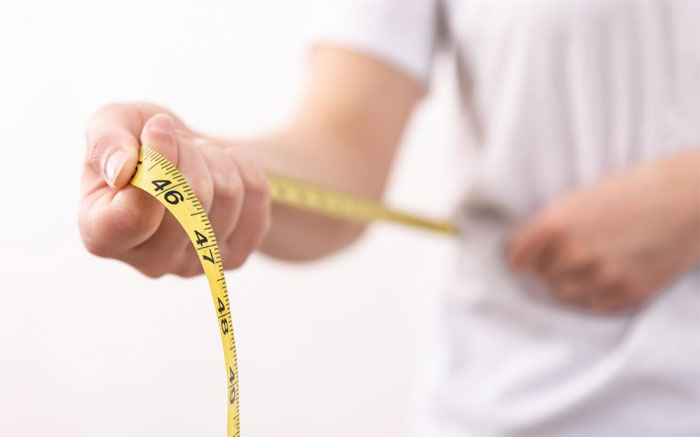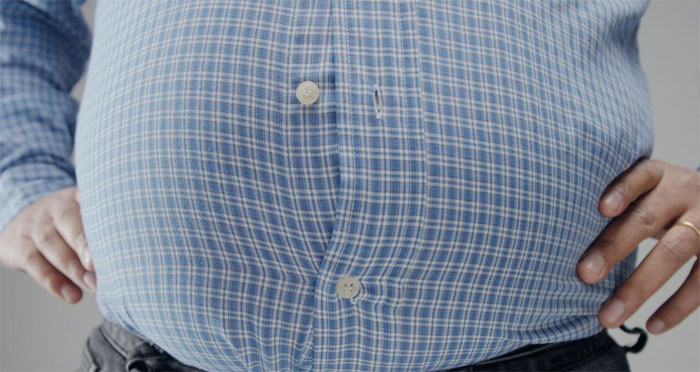Combat Low Testosterone and Weight Gain with Proven Strategies!

Stubborn belly fat doesn’t stand a chance when your hormone levels are optimized. Many men struggle with metabolic slowdowns, but the root cause often ties back to declining testosterone. This vital hormone fuels muscle growth, energy, and fat-burning efficiency.
Your body is a battlefield every pound of muscle you build acts as a frontline defense against fat storage. Without balanced testosterone, your metabolism fights an uphill battle. But victory is within reach.
We’ve deployed science-backed tactics to help you reclaim your physical edge. From targeted nutrition to advanced therapies like EvexiPEL pellets, these strategies are engineered for results. Ready to take command of your health?
Key Takeaways
- Hormonal imbalance can slow metabolism and increase fat storage.
- Muscle mass helps your body burn calories more efficiently.
- Testosterone plays a key role in energy and metabolic performance.
- Precision therapies like EvexiPEL can restore hormonal balance.
- Simple lifestyle changes amplify results.
Understanding Low Testosterone and Its Impact

Fat storage isn’t just about calories, it's about hormonal control. Your body relies on testosterone levels to command muscle development and incinerate fat. Without this hormone leading the charge, metabolism becomes a losing battle.
What Is Testosterone?
Think of testosterone as your biological general. This hormone directs growth, fuels muscle mass, and locks fat in the crosshairs. When levels drop, your metabolic defenses weaken, opening the floodgates for weight gain.
“Obese men average 30% lower testosterone70% of morbidly obese men meet criteria for hypogonadism.”
Why Low Testosterone Matters for Men’s Health

Belly fat isn’t just stubborn, it's a trait. Fat cells convert testosterone into estrogen through aromatase conversion, crippling your production further. The result? A vicious cycle of fat storage and energy crashes.
- Muscle fortification: Testosterone builds lean tissue, your metabolic shield.
- Fat incineration: Higher levels torch stored fat for fuel.
- Enemy territory: Belly fat actively sabotages hormonal balance.
We arm you with intel to reclaim control. The fight starts here.
Signs and Symptoms of Low Testosterone
Your body sends distress signals when hormones fall out of balance, don't ignore them. Nearly 30% of overweight men face this hormonal shortfall, compared to just 6% at healthy weights. The enemy leaves clues. Recognize them, and you reclaim control.
Physical Red Flags

Your energy tanks first. Fatigue becomes your shadow, and workouts feel like marathons. Watch for these frontline alerts:
- Muscle loss: Your metabolic shield weakens, making fat storage easier.
- Unexplained weight gain: Hormonal supply chains fail, fueling fat deposits.
- Brittle bones and sleep disruptions: Vital systems crumble without reinforcements.
Emotional and Cognitive Sabotage
Your mind isn’t spared. Hormonal gaps sabotage focus and resilience. Key threats:
- Mood swings: Irritability or depression strike without warning.
- Brain fog: Mental clarity vanishes mid-mission.
- Lost motivation: The drive to conquer flatlines.
“25% of Type 2 diabetics have a testosterone deficiency linking metabolic and hormonal health.”
We arm you with intel. Spot these symptoms early, and you counterattack with precision. The battle for balance starts with awareness.
The Link Between Low Testosterone and Weight Gain

Belly fat isn’t passive, it's a hormonal insurgent. When low testosterone levels weaken your defenses, fat cells launch a covert takeover. Your metabolism becomes collateral damage.
How Low T Promotes Fat Storage
Every pound of muscle lost is a metabolic bunker destroyed. Without enough testosterone, your body’s production of lean tissue slows. The result? A crippled ability to torch calories.
Fat thrives in this vacuum. Studies show obese men with low testosterone levels store 3x more visceral fat. It’s a biological betrayal your energy gets diverted to enemy stockpiles.
The Role of Aromatase in Belly Fat
Deep in adipose territory, an enzyme called aromatase ambushes your hormones. It converts testosterone into estrogen, a hostile takeover that fuels more fat storage.
- Muscle loss weakens your metabolic firepower.
- Belly fat cells disarm testosterone like enemy saboteurs.
- Estrogen spikes create hormonal "friendly fire."
“Men with waistlines over 40 inches have 50% higher estrogen levels as a direct result of aromatase activity.”
This isn’t just about aesthetics. It’s a biochemical war, and we’re giving you the intel to fight back.
Causes of Low Testosterone

Your hormonal command center faces threats from multiple fronts and knows your enemy. Whether from genetic conditions or battlefield lifestyle choices, testosterone deficiency rarely strikes without cause. We reveal the saboteurs undermining your production and how to counter them.
Primary Hypogonadism: Testicular Disorders
When the frontline of your test fails, hypogonadism declares war. Congenital conditions like Klinefelter’s syndrome cripple production from birth. Acquired injuries (chemotherapy, radiation) act as scorched-earth tactics.
- Genetic insurgents: Klinefelter’s syndrome adds an extra X chromosome, disrupting hormonal supply lines.
- Friendly fire: Anabolic steroid misuse shuts down natural testosterone factories.
Secondary Hypogonadism: Pituitary Betrayal
Your pituitary gland is the general issuing orders. When it falters, the entire hormonal chain of command collapses. Trauma, tumors, or metabolic disorders like diabetes can trigger this hypogonadism.
“25% of diabetic men suffer from testosterone deficiency metabolic mutiny.”
Lifestyle and Environmental Saboteurs

Sleep deprivation, chronic stress, and sedentary habits are lifestyle landmines. Each weakens your hormonal defenses, inviting fat storage and energy crashes.
- Sleep sabotage: Poor rest slashes production by 15% nightly.
- Stress traps: Cortisol hijacks testosterone reserves.
Natural Ways to Boost Testosterone
Nutrition and training are your secret weapons in the fight for hormonal balance. When testosterone levels drop, your energy and muscle mass take the hit. But with targeted strategies, you can rally your body’s defenses.
Diet and Nutrition: Fuel for Victory
Your diet is the frontline. Zinc and vitamin D act as elite reinforcements studies show deficiencies slash testosterone levels by 30%. Load up on these mission-critical rations:
- Zinc strikes: Oysters, beef, and pumpkin seeds fortify hormonal production.
- Vitamin D drops: Fatty fish and sunlight exposure boost reserves.
- Ashwagandha recon: This adaptogen reduces cortisol, freeing up hormonal resources.
Exercise: Heavy Artillery Wins Battles

Not all workouts are equal. Compound lifts like squats and deadlifts trigger a 20% surge in strength and hormonal output. Avoid excessive cardioit’s a skirmish that burns energy without building muscle mass.
“Men lifting heavy weights 3x/week saw testosterone spikes 48% higher than cardio-only groups.”
Sleep and Stress: Secure the Base
Sleep is non-negotiable barracks time. Under 7 hours nightly? Your hormonal recovery crumbles. Pair it with stress-recon tactics:
- Meditation lowers cortisol insurgents.
- Cold showers shock your system into resilience.
We’ve mapped the battlefield. Now execute.
Testosterone Replacement Therapy (TRT) as a Solution
When hormonal defenses weaken, medical reinforcements become essential testosterone replacement therapy (TRT) is your tactical upgrade. We deploy this treatment to restore balance where natural methods fall short. It’s not surrender; it’s strategic escalation.
Types of TRT: Gels, Injections, Pellets
Not all replacement therapy delivers equal firepower. Compare your options:
- Gels/Patches: Daily applications risk transference to others and uneven absorption.
- Injections: Frequent doses create hormonal spikes and crashes like erratic supply drops.
- EvexiPEL Pellets: A 3–6 month sustained campaign. Bioidentical hormones release steadily, no supply chain disruptions.
Benefits and Risks of TRT

Clinical trials prove testosterone replacement therapy delivers results. A 56-week study showed participants gained a 6.4-pound fat-loss advantage versus placebo groups. But every mission has intel on threats:
“TRT under medical supervision reduces side effects risks by 72%improving safety and outcomes.”
We neutralize concerns:
- Transference risks: Pellets eliminate accidental exposure to family members.
- Side effects like acne or mood swings? Controlled dosing and monitoring keep them in check.
This isn’t a last resort, it's a precision strike for your health. Ready to advance?
Conclusion
The battle for metabolic dominance starts with one decisive movehormonal testing. Know your levels, and you control the battlefield.
Victory requires a combined-arms approach:
- Natural tactics (nutrition, training) fortify your base.
- Testosterone replacement therapy (like EvexiPEL pellets) delivers sustained firepower.
We equip men with elite strategies. Reclaim your energy, focus, and physical edge. The mission is clear, deploy your plan today.
Your health is the ultimate objective. Secure it.
FAQ
How does low testosterone contribute to weight gain?
When levels drop, your body struggles to maintain muscle mass and regulate fat storage. This imbalance slows metabolism, making it easier to pack on pounds especially around the belly.
Can improving my diet help restore healthy testosterone levels?
Absolutely. Foods rich in zinc, vitamin D, and healthy fats fuel hormone production. Think grass-fed beef, eggs, and leafy greens, your body’s natural T-boosters.
What’s the best type of exercise to combat low T?
Strength training reigns supreme. Lifting heavy weights triggers growth hormone release, while compound movements like squats and deadlifts maximize testosterone response.
Are there risks with testosterone replacement therapy?
TRT can have side effects like acne or sleep apnea if not properly monitored. Always work with a specialist to balance benefits against potential risks for your unique physiology.
How does stress impact testosterone production?
Chronic stress floods your system with cortisol testosterone's arch-enemy. This hormone battle degrades muscle, increases fat storage, and tanks your energy levels.
Can low testosterone cause mood changes?
Yes. The hormone regulates neurotransmitters affecting motivation and emotional stability. Men often report irritability, brain fog, or depression when levels dip too low.
What role does sleep play in maintaining healthy testosterone?
Deep sleep is when your body produces most of its daily testosterone. Skimping on rest disrupts this critical recovery cycle, accelerating hormone decline.





